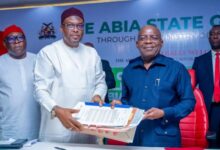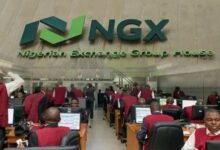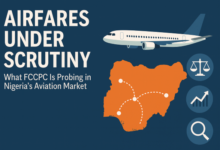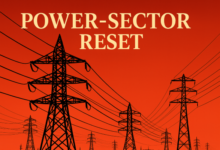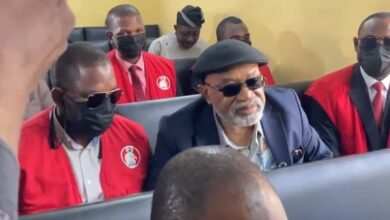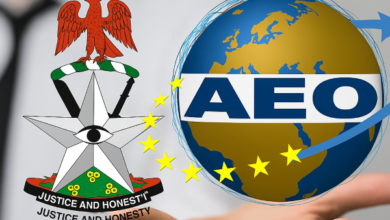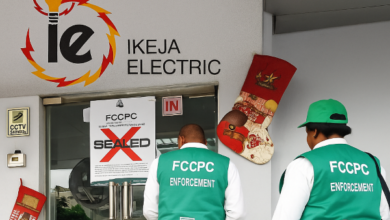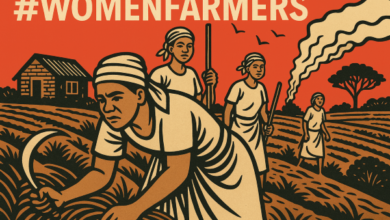ECOWAS common currency: To be or not to be?
 Lately, the proposal to adopt a common currency, ECO, for the Economic Community of West African States(ECOWAS) has elicited mixed reactions.
Lately, the proposal to adopt a common currency, ECO, for the Economic Community of West African States(ECOWAS) has elicited mixed reactions.
The goal of this plan is, inter alia, to merge the new currency with the West African CFA franc-used by the French-speaking members of ECOWAS.
The ECO, which is piloted by the West African Monetary Institute (WAMI), is expected to meet four primary criteria; viz:
A single-digit inflation rate at the end of each year; a fiscal deficit of no more than four per cent of the GDP; a central bank deficit-financing of no more than 10 per cent of the previous year’s tax revenues and gross external reserves that can give import cover for a minimum of three months.
The ECO is expected to take off be 2020.
President Muhammadu Buhari, recently, urged ECOWAS member countries to tread carefully in pushing for a single currency in the sub-region by 2020, drawing attention to the challenges faced by the European Union in realising the same goal.
Speaking at the 4th Meeting of the Presidential Task Force on the ECOWAS Currency Programme, in Niamey, Niger Republic, Buhari said that the necessary economic fundamentals among countries continue to differ over the years, making it more difficult to pull through with the project by 2020.
“Nigeria advises that we proceed cautiously with the integration agenda, taking into consideration the above concerns and the lessons currently unfolding in the European Union.
“To that end, Nigeria will caution against any position that pushes for a fast-track approach to monetary union, while neglecting fundamentals and other pertinent issues.’’
Buhari noted that some of the obstacles to realising the roadmap for the implementation of a single currency include diverse and uncertain macro-economic fundamentals of many countries, unrealistic inflation targeting based on flexible exchange rate regime and inconsistency with the African Monetary Co-operation Programme.
The president said domestic issues in ECOWAS member countries relating to their constitutions and dependence on aid continue to affect the framework for implementing the single currency in the sub-region.
“We are concerned that we have not properly articulated and analysed a comprehensive picture of the state of preparedness of individual countries for monetary integration in ECOWAS by 2020.
“In previous meetings, we had specifically raised observations on the state of preparedness of the member states, the credibility of the union if anchored on watered down criteria, and the continuing disparities between macroeconomic conditions in ECOWAS countries, amongst others.
“And I would like to reiterate this concerns,’’ he said.
The president told the Heads of State that the conditions that pushed Nigeria into withdrawing from the process in the past had not changed.
Buhari argued that the roadmap which did not involve widespread consultation with national stakeholders was not sufficiently inclusive.
To this end, he suggested a thorough review of the convergence roadmap and the constitution of an expert committee on each of the subject areas to come up with acceptable time frame, defined cost and funding sources identified.
In his contribution, the President of the ECOWAS Commission, Marcel Alain de Souza, said the single currency for the West African sub-region was a laudable and historical project, but regretted that it had taken too long to be actualised.
The President said the creation of a Central Bank for the West Coast would accelerate the process.
He noted that Nigeria constituted more than 70 per cent of the GDP of the West African region, with a population of 180 million, and would play a significant role in facilitating the process of realising a single currency for the sub-region.
Deserving no less attention, the United Global Resolve for Peace (UGRFP), an NGO, said that the ECOWAS Commission and Parliament should hold off plans to implement a common currency.
UGRFP’s Executive Director, Mr Olaseni Shalom, in a statement, said that laudable as the proposal might sound, it was not yet ripe for its implementation.
Shalom said that that the proponents of ECO, which was due to take off by 2020, had argued that it would build formidable structures to make the monetisation policy efficient and effective.
He advised the ECOWAS Commission and the Parliament to rather commence modalities towards the creation of an anti-terrorism taskforce for the sub-region.
“While we laud the issues which the idea came to solve like double figures inflation rates, double taxation policies and uncertain and unpredictable exchange rates among others, we yet have reservations to it.
“In spite of the above, we propose that the organisation channels its resources towards machinery that will sustain the policy if and when implemented. Such includes
“Regularisation of the exchange rates of all currencies serving as legal tenders in West Africa.
“Granting and implementing standard criteria for calculating GDP for member States from internally generated revenue;
“Increasing the purchasing power of local currencies of member states and; establishment of the West African Central bank.”
The executive director said that the ECOWAS Commission and Parliament should develop policies and laws to increase the economic capacity of the member states to individually compete in the global market.
He said that the organisation should render quality assistance to the member states to up internally generated revenue and increase their export leverage in the international market.
Shalom commended the commission on its swift response in the restoration of democracy in the Gambia, adding that such a brilliant initiative must be sustained if economic development is to be achieved.
He said that ECOWAS should adopt policies as well as treaties to gradually put an end to the idea of borrowing and taking loans from international financial organisations to service National budget.
“This will enable the member state to obtain an economic equilibrium, and tilt the exchange rate fluctuations.
“Setting up economic assistance schemes and technical forums to aid member states with smaller industrial capacity to cope and boost their economies for the sake of collective economic stability.
“Establishing a collective common purse to provide for extra funding for West African member states with low income generation to inspire them to greatness.
“We hereby urge the ECOWAS to commence modalities engineered towards the creation of an Anti-terrorism Taskforce comprising of volunteer military force from all the member state, as a panacea to disturbing menace of terrorism in West Africa,” he said.
Shalom said that terrorism was increasingly becoming a profitable endeavour for certain social miscreants in locations like Nigeria, Chad and Mali; hence it had become imperative for ECOWAS members nations to synerise against it.
He said that intelligence sharing among ECOWAS nations was key to combating the rising scourge of terrorism in the sub-region.
Sharing similar sentiments, a policy analyst, Mrs Eboh Obumkelu, said that West Africa was not ripe for a common currency yet.
She argued that, Nigeria as the biggest economy in West Africa, was not stable presently; therefore not ready for such currency.
“If Nigeria, as the backbone of West African economy is not stable, it means that anything that happens to Nigeria, will affect West Africa.
“Most West African countries cannot meet the basic criteria set for implementation of the common currency.
“ Nigeria is just coming out of recession; what we need now is to consolidate on manufacturing and boost our economy; the sub-region should improve infrastructure in order to facilitate cross-border trade,’’ she said.
According to her, if the contiguous economies in ECOWAS strengthen; the sub-region will become stronger and more viable for a common currency.
Nonetheless, former President Olusegun Obasanjo, recently called on the leaders of ECOWAS to agree on a common currency to boost regional trade.
He said the issue of common currency was getting delayed because the regional leaders had put forward “ECO” as a name for the currency, but wondered why it had not been adopted.
According to him, the currency is required to move the current level of the regional trade from 25 per cent to more than 50 per cent.
He said the various currency zones like the Naira zone, the Cedi zone, among others should not be allowed to mitigate the flow of trade within the region.
Be it as it may, the concerted opinion is that all the requisite socio-economic and political variables should be factored before a common currency is adopted by the ECOWAS sub-region.
Posted by Juliet Ekwebelam (NAN)


